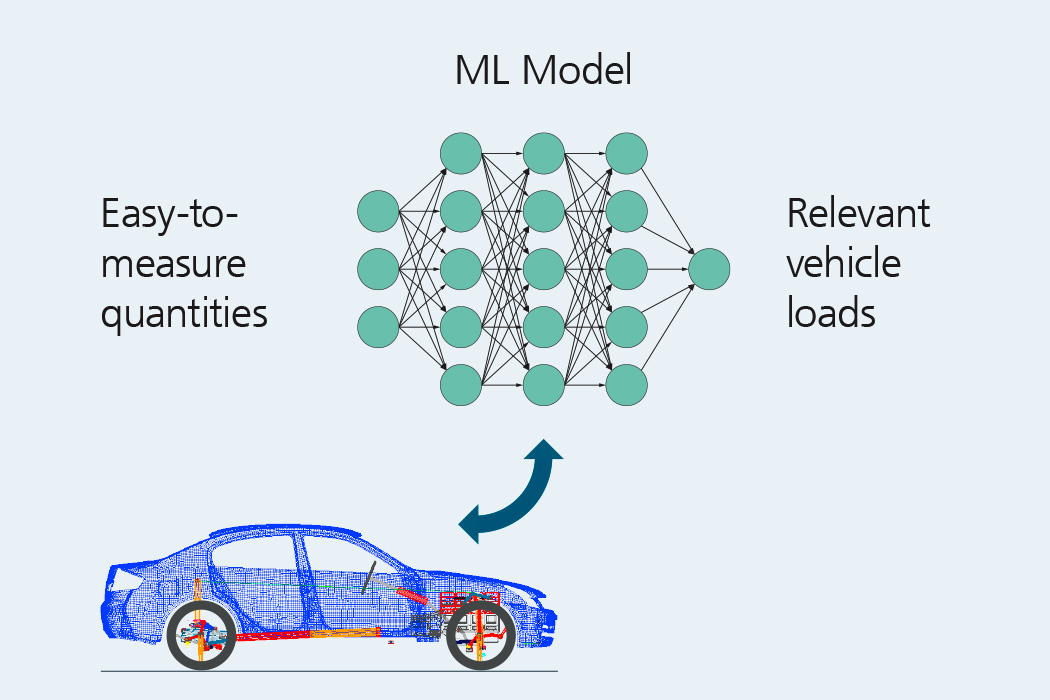In addition to physics-based modelling techniques, data-based mathematics is an important part of our work in the department »Dynamics, Loads and Environmental Data«. For example, we apply classical data analysis methods to usage, load and component data in order to better understand usage and system behavior and draw conclusions for future design and development steps.
In the vehicle sector, a great deal of data is already collected and recorded during normal driving, and data volumes are also generated in planned measurement campaigns (for individual vehicles or vehicle fleets). In addition, large amounts of data from past campaigns are often also available. Here we develop and use modern methods of data analytics that efficiently process and analyze even very large data sets (»Big Data«).

